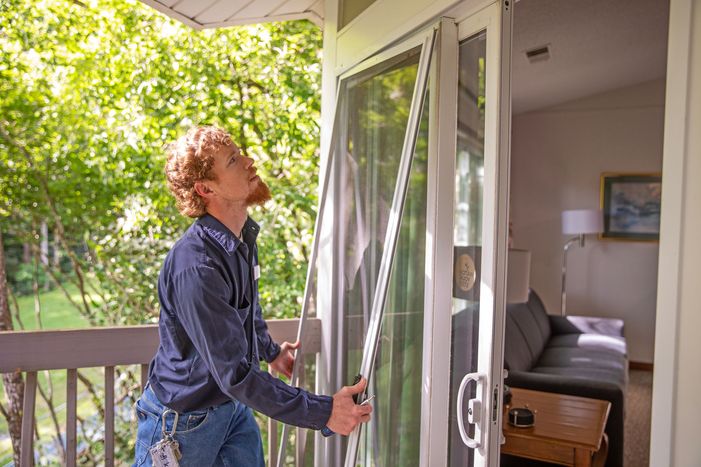Timeshare ownership can be an excellent option for those who love vacationing and want to take recurring trips to their favorite destination. However, one aspect of timeshare ownership that often raises questions and concerns is the timeshare maintenance fees.
These fees are part of the financial obligations associated with owning a timeshare, and understanding how they work is essential for both current owners and prospective buyers. This guide provides a comprehensive overview of timeshare maintenance fees, including what they cover, how much they typically cost, potential yearly increases, and what happens if they are unpaid.
What Are Timeshare Maintenance Fees?
Definition and Purpose
Timeshare maintenance fees cover the upkeep and management of the timeshare resort. These annual fees serve two purposes. First, they cover the property's day-to-day operational costs, such as utilities, staffing, and routine maintenance. Second, they contribute to a reserve fund that can be used for future repairs or unexpected expenses, ensuring the property's long-term sustainability.
What Do Timeshare Maintenance Fees Cover?
Timeshare maintenance fees typically include several key components:
Property Management: This includes the cost of employing staff to manage the property, including front desk personnel, housekeeping, and maintenance workers.
Utilities: Maintenance fees cover the cost of utilities such as electricity, water, gas, and internet services.
Property Maintenance: These fees fund regular maintenance tasks such as landscaping, pool cleaning, and building repairs.
Reserve Fund Contributions: A portion of the fees is set aside in a reserve fund to cover significant repairs or replacements, such as roof repairs, HVAC system replacements, and more.
Frequency of Payment
Timeshare companies typically bill maintenance fees annually, though some resorts allow owners to make semi-annual or quarterly payments. The exact due date can vary depending on the timeshare agreement, but paying these fees on time is essential to avoid penalties or other consequences.
What Do Timeshare Maintenance Fees Cover?
Property Maintenance and Upkeep
Most timeshare maintenance fees go toward the property's regular upkeep and maintenance. This includes tasks like cleaning common areas, maintaining the landscaping, and performing necessary repairs. The goal is to keep the property in top condition to remain attractive and functional for all owners.
Routine maintenance also extends to the interiors of the units themselves. This might involve replacing worn-out furniture, updating appliances, or refreshing the décor to ensure the units remain comfortable and appealing.
Utilities and Services
Timeshare maintenance fees cover utilities, including electricity, water, gas, and internet service. Some properties may also include cable TV, Wi-Fi, and telephone services in maintenance fees. These costs are shared among all owners, ensuring that the property remains fully functional and equipped with modern amenities.
Reserve Funds for Future Repairs
One of the most critical components of timeshare maintenance fees is the contribution to reserve funds. These funds get set aside for future repairs and renovations. For example, suppose the property needs a new roof, major plumbing work, or a complete overhaul of the HVAC system. In that case, the reserve fund covers these substantial expenses without requiring a sudden, large payment from owners.
What is the Average Maintenance Fee for a Timeshare?
Average Costs
The average timeshare maintenance fee varies depending on the location, property type, and service level. According to the most recent data, the average annual maintenance fee typically costs between $800 and $1,200. However, luxury properties or those in high-demand locations can see fees exceeding $1,500 or even $2,000 annually.
Factors Affecting the Costs
Several factors can influence the cost of timeshare maintenance fees, including:
Location: You can expect higher maintenance fees for properties in popular tourist destinations or high-cost areas. This is due to the increased cost of living and doing business in those regions.
Property Size and Type: Larger properties or those offering more luxurious accommodations and amenity options typically have higher fees to cover the additional costs.
Level of Services: Properties that offer a wide range of services, such as on-site restaurants, spas, or concierge services, will have higher maintenance fees to cover the cost of providing these amenities.
Variations by Location and Type
Property location is the most significant factor in the variation of maintenance fees. For example, a timeshare in a popular beach destination like Hawaii or the Caribbean will likely have higher maintenance fees than a property in a less sought-after location. Additionally, the type of property — whether it's a high-rise condominium, a stand-alone villa, or a resort-style complex — can also impact the fees due to differences in maintenance requirements and associated costs.
The Implications of Not Paying Timeshare Maintenance Fees
Financial Consequences
Failing to pay your timeshare maintenance fees can lead to significant financial consequences. Most timeshare agreements include penalties for late payments, which can quickly add up and increase the amount you owe. Over time, unpaid fees can accumulate, making it even more challenging to catch up.
Legal Ramifications
If maintenance fees remain unpaid, the timeshare management company may take legal action to recover the debt. This can include sending the account to a collections agency or even filing a lawsuit against the owner. Sometimes, the management company may have the right to foreclose on the timeshare, meaning you could lose your ownership rights entirely.
Impact on Credit Score
Unpaid maintenance fees can also negatively impact your credit score. If your account is sent to collections, it will be reported to credit bureaus, which will cause a drop in your credit score. A lower credit score can make it harder to obtain loans and credit cards or even rent an apartment in the future.
How to Manage and Reduce Timeshare Maintenance Fees
Strategies for Cost Reduction
There are several strategies that timeshare owners can employ to manage and potentially reduce their maintenance fees:
Join the HOA Board: By getting involved with your timeshare's Homeowners Association (HOA), you can have a say in how the property is managed and how the budget is allocated. This might help in finding cost-saving measures that could lower fees.
Negotiate with Management: You can negotiate certain aspects of your maintenance fees in some cases, particularly if you believe you're being overcharged for services.
Use Exchange Programs: Most timeshare companies give you access to exchange programs, which allow you to trade your timeshare week or points for a different property. This can offset costs if the other property has lower fees.
Resale Market Options
If your maintenance fees have become unmanageable, consider selling your timeshare. While you may not recoup your initial investment, selling can relieve you of the ongoing costs. If you do decide to exit your timeshare, be sure to work with your timeshare company directly. Many companies offer buy-back programs, can help with transferring ownership, or provide recommended resellers and other exit solutions.
Hiring Professional Help for Fee Management
Hiring a professional to assist with fee management might be a worthwhile investment for those struggling to manage their timeshare fees. They can help you navigate the complexities of timeshare ownership, negotiate with management companies, and even assist with selling your timeshare if necessary.
Understanding Annual Increases in Timeshare Maintenance Fees
Reasons Behind Yearly Increases
Due to several factors, annual increases in timeshare maintenance fees are standard. Some of those factors are:
Inflation: As the cost of goods and services increases due to inflation, so do the costs of maintaining the property.
Rising Utility Costs: Increases in utility rates, such as electricity or water, directly impact the cost of maintaining the property, leading to higher fees.
Property Enhancements: If the property undergoes significant enhancements or upgrades, such as adding new amenities or renovating existing ones, the costs of these improvements can result in higher maintenance fees.
Historical Trends
Historically, timeshare maintenance fees have seen steady increases year over year. On average, fees increase by about 3-5% annually, although this can vary depending on the property and location. It's important for owners to anticipate these increases and budget accordingly.
Tips to Anticipate and Prepare for Increases
To better manage the impact of annual increases in maintenance fees, consider the following tips:
Review Your Budget: Regularly update your budget to account for anticipated increases in maintenance fees. This will help you avoid financial surprises.
Stay Informed: Keep an eye on communications from your timeshare management company or HOA. They often provide advance notice of fee increases and the reasons behind them.
Consider Pre-Payment: Some timeshare companies offer the option to pre-pay maintenance fees for a set number of years. If you can afford it, this might be a way to lock in your current rate and avoid future increases for a while.
Frequently Asked Questions
How do I get out of timeshare maintenance fees?
Getting out of timeshare maintenance fees can take time and effort. One option is to sell your timeshare, although this may be difficult depending on market demand. Remember: The safest way to sell your timeshare is through your timeshare company directly. In extreme cases, some owners may stop paying altogether, which can lead to significant financial and legal consequences, including foreclosure.
Can I stop paying maintenance fees on my timeshare?
Refusing to pay timeshare maintenance fees can lead to serious repercussions. Initially, you may face late fees and interest charges. If the fees remain unpaid, the management company may send your account to a collections agency, negatively impacting your credit score. Ultimately, the company may take legal action, potentially resulting in foreclosure of your timeshare and a lawsuit to recover the owed amount.
Can you write off timeshare maintenance fees?
Yes, you can write off timeshare maintenance fees on your taxes if the property is used as a rental, allowing you to deduct the fees as a business expense. However, if it's used for personal vacations, the fees are generally not tax-deductible.
Why are timeshare maintenance fees so high?
Timeshare maintenance fees are high due to the costs of property upkeep, management, utilities, insurance, and reserves for future repairs. These fees are also influenced by inflation and the need to cover unexpected expenses, which can drive costs up over time.
Do you ever finish paying off a timeshare?
Timeshare ownership typically comes with ongoing financial obligations, including maintenance fees, that continue as long as you own the timeshare. While you may finish paying off any initial purchase costs or financing, the responsibility to pay maintenance fees remains. These fees are essential for the upkeep and operation of the property and are generally required for the duration of your ownership.
Understanding timeshare maintenance fees, including what they cover, how they are calculated, and the potential consequences of not paying them, can help you make more informed decisions about your timeshare ownership. Whether you're a current owner or considering purchasing a timeshare, being aware of these financial obligations is crucial for managing your investment effectively.







